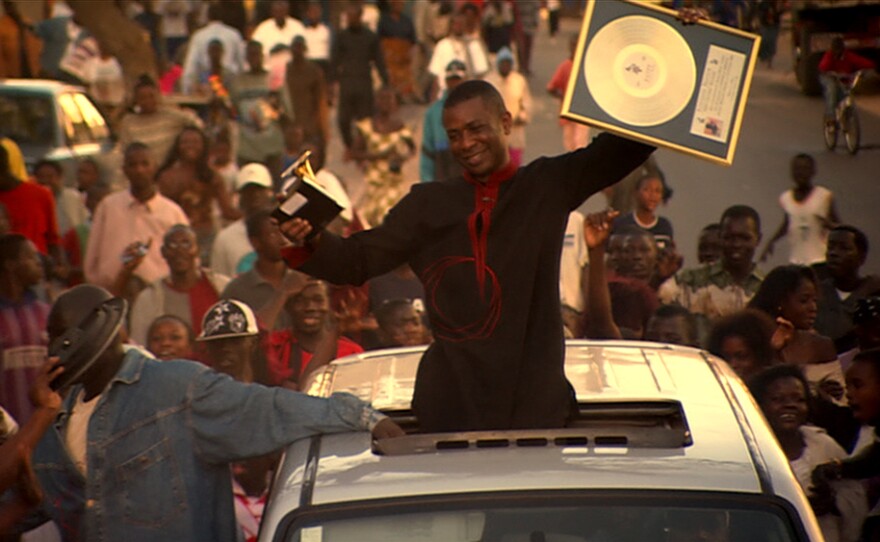“It Might Get Loud” gave us a celebration of musicians and their electric guitars. Now the documentary “Youssou N'Dour: I Bring What I Love” (opened September 4 at Reading Gaslamp Stadium Theaters) celebrates a musician and his music within a more political context.
Youssou N'Dour is a Senegalese Sufi-star that Americans might remember from his appearance Peter Gabriel's "In Your Eyes” music video. But N’Dour’s real claim to fame is as a musician who rose from the slum-clubs of Senegal to become an internationally acclaimed singer who made popular a style of music that mixed his country's traditional griot percussion and praise-singing with Afro-Cuban and Haitian flavors. We are familiar with the political activism of pop stars such as Bono and Neil Young but filmmaker Elizabeth Chai Vasarhelyi asks us what it means to be a Muslim pop star trying to straddle a fundamentalist world with a mainstream American one.
The film opens like a concert film highlighting N’Dour as a performer first. We also get a cursory intro to aspects of Islam and the significance of Ramadan. This proves important as N’Dour prepares his controversial album “Egypt” that collects sacred songs celebrating his Muslim faith. It’s at this point that “I Bring What I Love” becomes more than just a standard concert film.

Vasarhelyi shows how playing in a club in Dublin creates problems as some of the Muslim musicians refuse to perform in a place where alcohol is being served. So after a lengthy explanation/apology by one of the event organizers, the Irish patrons are asked to give up their drinks – which they actually do without a fight. N’Dour, in an interview, later explains that this only happened because some of the band members were Egyptian; Muslims in Senegal from what’s known as the Sufi sect, he says would have been more tolerant. But that greater tolerance is not always apparent as N’Dour runs into problems in Senegal and other mid-eastern countries that view his album as sacrilegious. Add to all this that the album was originally intended to come out in 2001 right after 9/11. So realizing that a celebration of Islam right after 9/11 would not o over well in the U.S., N’Dour postponed his album for a number of years waiting till 2004 for its release. But while Vasarhelyi attempts to explore these controversies and complications, she also opts for a simplistic resolution in which N’Dour wins a Grammy for the record and suddenly things seem okay and he’s given a parade back home.
“Youssou N’Dour: I Bring What I Love” (rated PG for thematic elements and brief smoking and in French, Wolof and Arabic with English subtitles) conveys the passions of N’Dour and the obstacles he faces by choosing to create music with an agenda. The film is not as complex as one might hope --- it raises issues that it doesn’t really want to fully explore – but it’s a wonderful introduction to N’Dour’s music and a thoughtful exploration of both the man and his music.
Companion viewing” “Amandla! A Revolution in Four Part Harmony,” “Bound for Glory,” “U2: Rattle and Hum”






